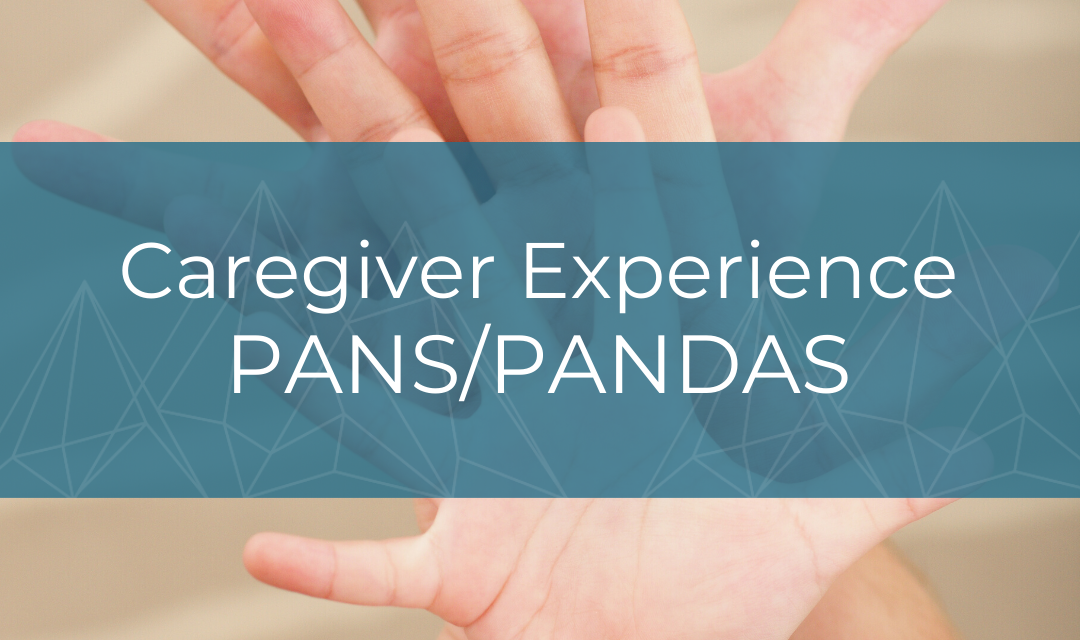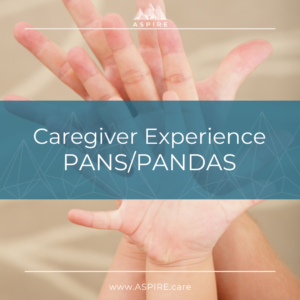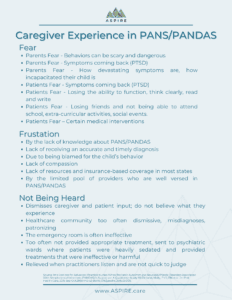Common Themes from the Caregiver Experience & Handout

Patient & Family Experience with PANS/PANDAS
 We encourage clinicians, teachers, providers, etc. to understand the human aspects of PANS/PANDAS as symptoms are often so distressing. It is essential to learn about the experience of patients and families living with PANS/PANDAS.
We encourage clinicians, teachers, providers, etc. to understand the human aspects of PANS/PANDAS as symptoms are often so distressing. It is essential to learn about the experience of patients and families living with PANS/PANDAS.
Fear
- Parents Fear – Behaviors can be scary and dangerous
- Parents Fear – Symptoms coming back (PTSD)
- Parents Fear – How devastating symptoms are, how incapacitated their child is
- Patients Fear – Symptoms coming back (PTSD)
- Patients Fear – Losing the ability to function, think clearly, read and write
- Patients Fear – Losing friends and not being able to attend school, extra-curricular activities, social events.
- Patients Fear – Certain medical interventions
Frustration
- By the lack of knowledge about PANS/PANDAS
- Lack of receiving an accurate and timely diagnosis
- Due to being blamed for the child’s behavior
- Lack of compassion
- Lack of resources and insurance-based coverage in most states
- By the limited pool of providers who are well versed in PANS/PANDAS
Not Being Heard
- Dismisses caregiver and patient input; do not believe what they experience
- Healthcare community too often dismissive, misdiagnoses, patronizing,
- The emergency room is often ineffective
- Too often not provided appropriate treatment, sent to psychiatric wards where patients were heavily sedated and provided treatments that were ineffective or harmful
- Relieved when practitioners listen and are not quick to judge
Caregiver Experience in PANS PANDAS
 Source: Implications for Advanced Practice Nurses When Pediatric Autoimmune Neuropsychiatric Disorders Associated With Streptococcal Infections (PANDAS) Is Suspected: A Qualitative Study McClelland, Molly, PhD, RN et al. Jnl Ped Health Care, 2015 Sep-Oct;29(5):442-52 doi:10.1016/j.pedhc.2015.03.005.
Source: Implications for Advanced Practice Nurses When Pediatric Autoimmune Neuropsychiatric Disorders Associated With Streptococcal Infections (PANDAS) Is Suspected: A Qualitative Study McClelland, Molly, PhD, RN et al. Jnl Ped Health Care, 2015 Sep-Oct;29(5):442-52 doi:10.1016/j.pedhc.2015.03.005.
Return to Section: